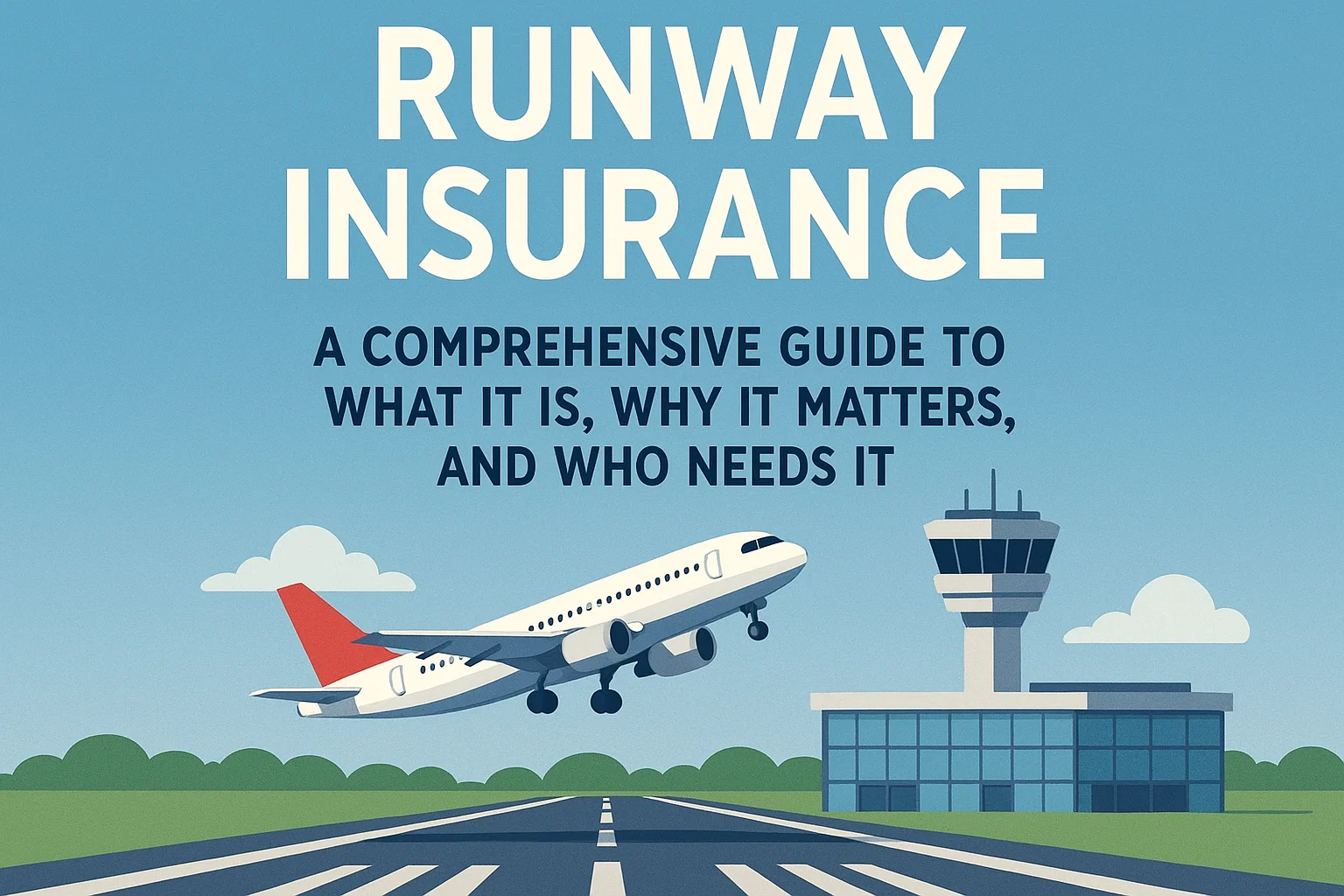In today’s increasingly unpredictable business landscape, entrepreneurs and investors are constantly seeking ways to protect their ventures from unforeseen risks. One emerging term making waves, particularly in the startup and aviation communities, is “Runway Insurance.” While it might sound niche, this concept is rapidly becoming a vital financial safety net in a world where market shifts, funding delays, and operational hurdles can threaten business continuity.
In this article, we’ll unpack what Runway Insurance actually means, explore its various interpretations across industries, and explain why it could be the difference between startup survival and shutdown.
What is Runway Insurance?
The term “runway” typically refers to the amount of time a startup can continue to operate before it runs out of cash, based on current expenses and available funds. For example, if a company has $500,000 in the bank and spends $50,000 a month, it has a 10-month runway.
Runway Insurance, in this context, is a financial tool or strategy designed to extend or protect that operating runway. While not always a literal insurance policy like auto or health insurance, it serves the same purpose: to provide security and coverage in times of uncertainty.
There are generally two main ways to interpret Runway Insurance:
- Startup-focused financial protection
- Aviation-related liability or asset protection
Let’s break down both.
1. Runway Insurance for Startups and Businesses
In the startup world, Runway Insurance acts as a financial buffer to help companies manage risk during early growth stages. Here’s how it works and why it’s important:
A. What It Covers
- Revenue interruptions due to market downturns, pandemics, or regulatory changes.
- Delayed funding rounds, giving startups more time to secure investment.
- Unexpected expenses such as legal costs, cyberattacks, or supplier failure.
- Key personnel losses, especially in founder-led startups.
Instead of a traditional insurance policy, this may come in the form of:
- A structured insurance product offered by fintech or insurtech companies.
- A contingency plan or loan agreement triggered by specific business events.
- Investor-backed protections, where VCs help cover short-term gaps in return for equity.
B. Why It’s Needed
Startups are inherently risky. Even promising ventures with strong teams and good traction can face:
- Economic downturns
- Political instability
- Global pandemics
- Tech failures
Runway Insurance offers founders peace of mind, ensuring they have a backup plan in case growth doesn’t go as expected or external factors disrupt operations.
C. Who Offers It?
Emerging insurtech firms and financial services platforms are beginning to offer Runway Protection Plans or Business Interruption Products tailored to startups. These can be customized based on industry, stage, and risk profile.
2. Runway Insurance in Aviation
In a more literal sense, Runway Insurance also refers to insurance coverage related to airport runways and aircraft operations. This type of policy is vital for:
- Airports
- Private airstrips
- Aircraft maintenance companies
- Charter flight operators
A. What It Covers
- Runway damage caused by aircraft incidents
- Environmental liabilities (e.g., fuel spills or damage to surrounding land)
- Third-party property damage
- Personal injury due to runway mishaps
- Loss of operations due to runway closures or repairs
Aviation insurance providers typically offer this coverage as part of a broader airport liability policy.
B. Why It’s Important
Runways are multi-million-dollar infrastructures. Damage or operational issues can lead to:
- Flight cancellations
- Legal disputes
- High repair costs
- Revenue loss
For airports and private airstrip owners, Runway Insurance ensures they can recover quickly and resume operations with minimal disruption.
Key Differences Between Startup and Aviation Runway Insurance
| Feature | Startup Runway Insurance | Aviation Runway Insurance |
|---|---|---|
| Industry | Startups, Tech, Business | Aviation, Airports, Airlines |
| Purpose | Extend financial runway, manage business risk | Cover physical runway assets and liabilities |
| Coverage | Funding gaps, legal costs, revenue loss | Damage, accidents, operational liability |
| Providers | Fintech, insurtech, VCs | Aviation insurance companies |
| Type | Strategic financial product | Traditional insurance policy |
Benefits of Runway Insurance
Whether you’re a tech founder or an airport operator, runway insurance offers several advantages:
- Risk Mitigation: Protects your core operations from unexpected disruptions.
- Business Continuity: Ensures you can keep running even during financial shocks.
- Investor Confidence: Makes your venture more attractive to backers and partners.
- Peace of Mind: Reduces stress, allowing you to focus on growth instead of survival.
How to Get Runway Insurance
For startups:
- Speak with a financial advisor or explore insurtech platforms.
- Look into venture-backed safety nets or funding insurances.
- Ask your VC firm if they offer contingency support.
For aviation businesses:
- Contact a licensed aviation insurance broker.
- Ensure your policy covers both liability and infrastructure.
- Regularly assess risk based on flight volume and runway usage.
Final Thoughts
In both metaphorical and literal senses, Runway Insurance is a vital shield in uncertain environments. Whether you’re building a disruptive startup or managing air traffic, the ability to bounce back from setbacks is critical to long-term success.
With the right protection in place, you can extend your runway—not just in time or distance, but in resilience.










